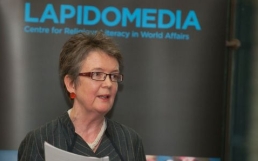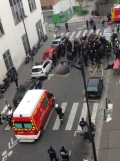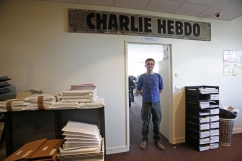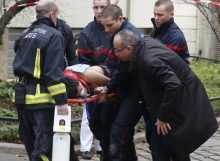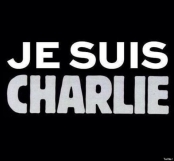During today's shooting at the Charlie Hebdo office in Paris, the gunmen reportedly shouted "We have avenged the Prophet Muhammad". The attack has been described as terrorism, and appears to have been religiously motivated but is uncharacteristic of recent terrorist attacks in Europe, according to one security expert.
France experienced more terrorist incidents in 2013 than any other country in Europe according to a Europol study published in 2014. However, none of the 63 incidents reported that year were defined as 'religiously inspired'. In the entire European Union seven people died in terrorist incidents in 2013, almost twice that number died today.
Professor Paul Cornish, research group director in defence, infrastructure and security for RAND Europe, told Christian Today that today's attack "did not set out to achieve a so-called 'spectacular' in the manner with which we have become familiar – a large-scale attack with extensive loss of life and physical destruction, and instantly recognisable as such on world media. It was a brutal attack, but very targeted brutality."
It is not yet known who is responsible for the attack, or their precise motivation. Charlie Hebdo has repeatedly caused offence with its depictions of Muhammad, and its most recent tweet before the attack was a cartoon of Islamic State leader Abu Bakr al-Baghdadi.
Editor and cartoonist Stephane Charbonnier (Charb), who was killed in the shooting, was already living under police protection and had received death threats in the past.
But Cornish said the preparation time for this attack could have been minimal, making it more difficult to detect. "This is a major concern to the agencies: a highly effective attack which is nevertheless below the radar and thus is harder to prevent."
Attacks of this kind have been relatively rare in France. In March 2012 an al-Qaeda-inspired gunman killed seven people in three separate shootings in Toulouse. In response, President Sarkozy proposed new anti-terror laws to crack down on those who frequent websites that promote terrorism.
In December 2014 a man reportedly shouted "Allahu Akbar" (God is greatest) when he rammed a vehicle into a crowd in Dijon, injuring 13 people. Prime Minister Manuel Valls said that France had "never before faced such a high threat linked to terrorism".
But it is questionable whether this is really terrorism as it is usually defined – something that causes fear in the population rather than a specific retaliatory incident.
"It is bound to be described as a terrorist attack – I can think of no better term," said Cornish. "But terrorism is meant to terrorise. I'm not sure that will be the effect. Instead, we're more likely to see defiance on the part of society – life will go on as usual in Paris, just as it did in London during the IRA 'Troubles'.
"So, if the goal was classical terrorism, I can't see that it will work, either by instilling fear in the population or by causing a fundamental loss of confidence in intelligence and security agencies and indeed governments. But what if the goal was more subtle and long-term – to deepen divisions within society between non-Muslims and Muslims. France has been tolerant and relatively stable in terms of inter-religious affairs, but there are indications of disquiet... Could this be the aim?"










